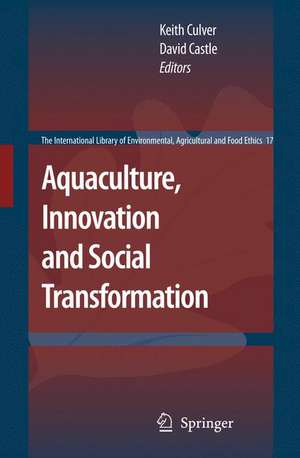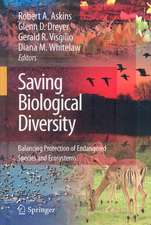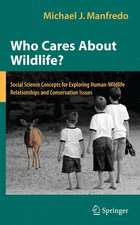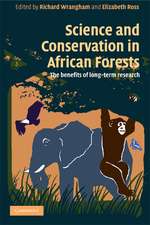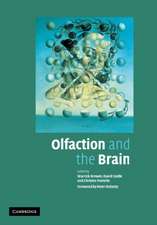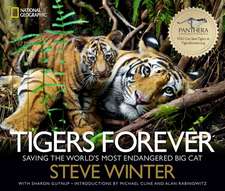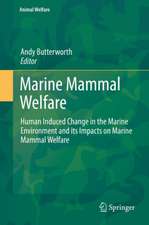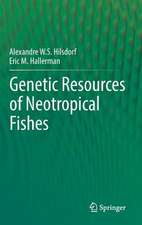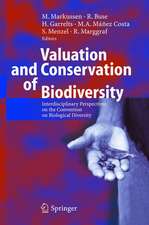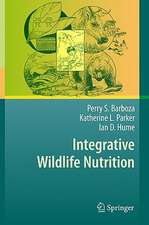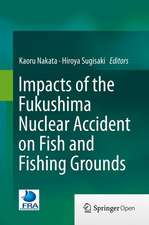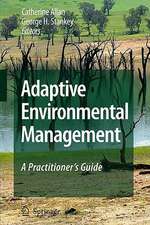Aquaculture, Innovation and Social Transformation: The International Library of Environmental, Agricultural and Food Ethics, cartea 17
Editat de Keith Culver, David Castleen Limba Engleză Hardback – 16 oct 2008
| Toate formatele și edițiile | Preț | Express |
|---|---|---|
| Paperback (1) | 947.50 lei 6-8 săpt. | |
| SPRINGER NETHERLANDS – 19 noi 2010 | 947.50 lei 6-8 săpt. | |
| Hardback (1) | 953.65 lei 6-8 săpt. | |
| SPRINGER NETHERLANDS – 16 oct 2008 | 953.65 lei 6-8 săpt. |
Din seria The International Library of Environmental, Agricultural and Food Ethics
- 15%
 Preț: 707.96 lei
Preț: 707.96 lei -
 Preț: 451.76 lei
Preț: 451.76 lei - 18%
 Preț: 731.10 lei
Preț: 731.10 lei - 18%
 Preț: 744.53 lei
Preț: 744.53 lei - 18%
 Preț: 899.87 lei
Preț: 899.87 lei - 18%
 Preț: 1831.27 lei
Preț: 1831.27 lei - 15%
 Preț: 644.82 lei
Preț: 644.82 lei - 15%
 Preț: 643.16 lei
Preț: 643.16 lei - 18%
 Preț: 947.04 lei
Preț: 947.04 lei - 18%
 Preț: 953.20 lei
Preț: 953.20 lei - 15%
 Preț: 646.62 lei
Preț: 646.62 lei - 15%
 Preț: 646.75 lei
Preț: 646.75 lei - 18%
 Preț: 1116.40 lei
Preț: 1116.40 lei - 15%
 Preț: 643.99 lei
Preț: 643.99 lei - 15%
 Preț: 645.28 lei
Preț: 645.28 lei - 15%
 Preț: 637.28 lei
Preț: 637.28 lei - 18%
 Preț: 786.66 lei
Preț: 786.66 lei - 15%
 Preț: 644.30 lei
Preț: 644.30 lei -
 Preț: 398.74 lei
Preț: 398.74 lei - 18%
 Preț: 902.69 lei
Preț: 902.69 lei - 24%
 Preț: 697.64 lei
Preț: 697.64 lei -
 Preț: 388.52 lei
Preț: 388.52 lei - 20%
 Preț: 570.97 lei
Preț: 570.97 lei - 18%
 Preț: 784.61 lei
Preț: 784.61 lei - 15%
 Preț: 527.79 lei
Preț: 527.79 lei - 24%
 Preț: 635.52 lei
Preț: 635.52 lei - 15%
 Preț: 647.08 lei
Preț: 647.08 lei
Preț: 953.65 lei
Preț vechi: 1162.99 lei
-18% Nou
Puncte Express: 1430
Preț estimativ în valută:
182.51€ • 189.83$ • 150.67£
182.51€ • 189.83$ • 150.67£
Carte tipărită la comandă
Livrare economică 14-28 aprilie
Preluare comenzi: 021 569.72.76
Specificații
ISBN-13: 9781402088346
ISBN-10: 1402088345
Pagini: 360
Ilustrații: XII, 346 p.
Dimensiuni: 155 x 235 x 33 mm
Greutate: 0.68 kg
Ediția:2008
Editura: SPRINGER NETHERLANDS
Colecția Springer
Seria The International Library of Environmental, Agricultural and Food Ethics
Locul publicării:Dordrecht, Netherlands
ISBN-10: 1402088345
Pagini: 360
Ilustrații: XII, 346 p.
Dimensiuni: 155 x 235 x 33 mm
Greutate: 0.68 kg
Ediția:2008
Editura: SPRINGER NETHERLANDS
Colecția Springer
Seria The International Library of Environmental, Agricultural and Food Ethics
Locul publicării:Dordrecht, Netherlands
Public țintă
ResearchCuprins
Editors’ Introduction.- Editors’ Introduction.- Animal Welfare in Aquaculture.- Animal Welfare in Aquaculture.- Science and Governance Issues in Aquaculture AnimalWelfare.- Welfare and Aquaculture Industry Practice.- Knowledge Management and Intellectual Property Issues in Aquaculture.- The Mark of Innovation in Aquaculture: The Role of Intangible Assets.- New School Fish Production vs Old School Fish Harvesting.- Return on Investment or How Not to Pay Commercial Licenses for Your Own Technology.- The Environmental Sustainability of Aquaculture.- Environmental Aspects of Aquaculture.- Ethics, Governance and Regulation.- A Synopsis of Environmental Issues Associated with Salmon Aquaculture in Canada.- The Interaction Between Traditional and Local Knowledge, and Modern Aquaculture.- “It All Depends on the Lens, B’y”1: Local Ecological Knowledge and Institutional Science in an Expanding Finfish Aquaculture Sector.- “S’kuu See”: Integrating Forms of Knowledge.- Oral History and Traditional Ecological Knowledge.- Messages, Consumers and Aquaculture: New Products, New Worries.- Public Engagement Regarding Aquaculture Products Produced Through Biotechnology.- Consumers and Aquaculture, New Products – New Worries.- Aquaculture Innovation and the Role of Popular and Trade Media.- The Final Frontier: Integrated Coastal Zone Management.- Integrated Systems Analysis for Marine Site Evaluations and Multicriteria Decision Support for Coastal Aquaculture.- Integrated Systems Analysis for Marine Site Evaluation: Appropriate for the Canadian Marine Farming Industry?.- Models for Analysis and Practical Realities of Marine Aquaculure Siting.- New practices for Global Competitiveness: Alternate Species, Alternate Uses, and Value-Added Aquaculture.- Governance for GlobalCompetitiveness: The Future of Aquaculture Policy in aWorld Turned Upside Down.- Consumer Confidence, Food Safety, and Salmon Farming.- Aquaculture Policies for Global Competitiveness: An Industry Perspective.
Recenzii
From the reviews:
“Presents oppositional evidence around seven contentious issues surrounding aquaculture in an advanced industrial country … . very interesting book–and a way to learn about aquaculture as a future source of animal protein. … required reading for those interested in aquaculture as a source of food and trade. It is also useful for scholars of ethics, knowledge, and governance of production and natural resources. … Contested knowledges, particularly of impacts, of both scientists and fishers is the basis of governance in times of rapid change.” (Cornelia Butler Flora, Journal of Agricultural and Environmental Ethics, Vol. 23, 2010)
“Presents oppositional evidence around seven contentious issues surrounding aquaculture in an advanced industrial country … . very interesting book–and a way to learn about aquaculture as a future source of animal protein. … required reading for those interested in aquaculture as a source of food and trade. It is also useful for scholars of ethics, knowledge, and governance of production and natural resources. … Contested knowledges, particularly of impacts, of both scientists and fishers is the basis of governance in times of rapid change.” (Cornelia Butler Flora, Journal of Agricultural and Environmental Ethics, Vol. 23, 2010)
Textul de pe ultima copertă
Aquaculture, Innovation and Social Transformation presents and interprets Canadian and international perspectives on the debate over the future of aquaculture in Canada.
Original chapters examine:
Of particular note is the inclusion of perspectives written by First Nations members, and an epilogue from the comparative perspective of US experience.
This book will be of interest to those concerned with the social effects of intensification of food production, food security, scholars of technology, environment-focussed researchers, and anyone who cares about the future of the world’s oceans.
This volume is unique in its depiction of the nature and complexity of the social dimensions of the choice to farm the ocean.
Original chapters examine:
- animal welfare;
- knowledge management and intellectual property;
- environmental sustainability;
- local, traditional, and aboriginal knowledge;
- consumers;
- and integrated coastal zone management.
Of particular note is the inclusion of perspectives written by First Nations members, and an epilogue from the comparative perspective of US experience.
This book will be of interest to those concerned with the social effects of intensification of food production, food security, scholars of technology, environment-focussed researchers, and anyone who cares about the future of the world’s oceans.
This volume is unique in its depiction of the nature and complexity of the social dimensions of the choice to farm the ocean.
Caracteristici
First book-length collaborative study of the social context, future and consequences of aquaculture in Canada A blend of perspectives: Canadian and European academic chapters with commentaries from commentators who work in the private and public sectors First Nations perspectives offered by First Nations members Epilogue ‘from the outside looking in,’ Barry Costa-Pierce of the University of Rhode Island offers a comparative American perspective on the Canadian experience of industrializing aquaculture
